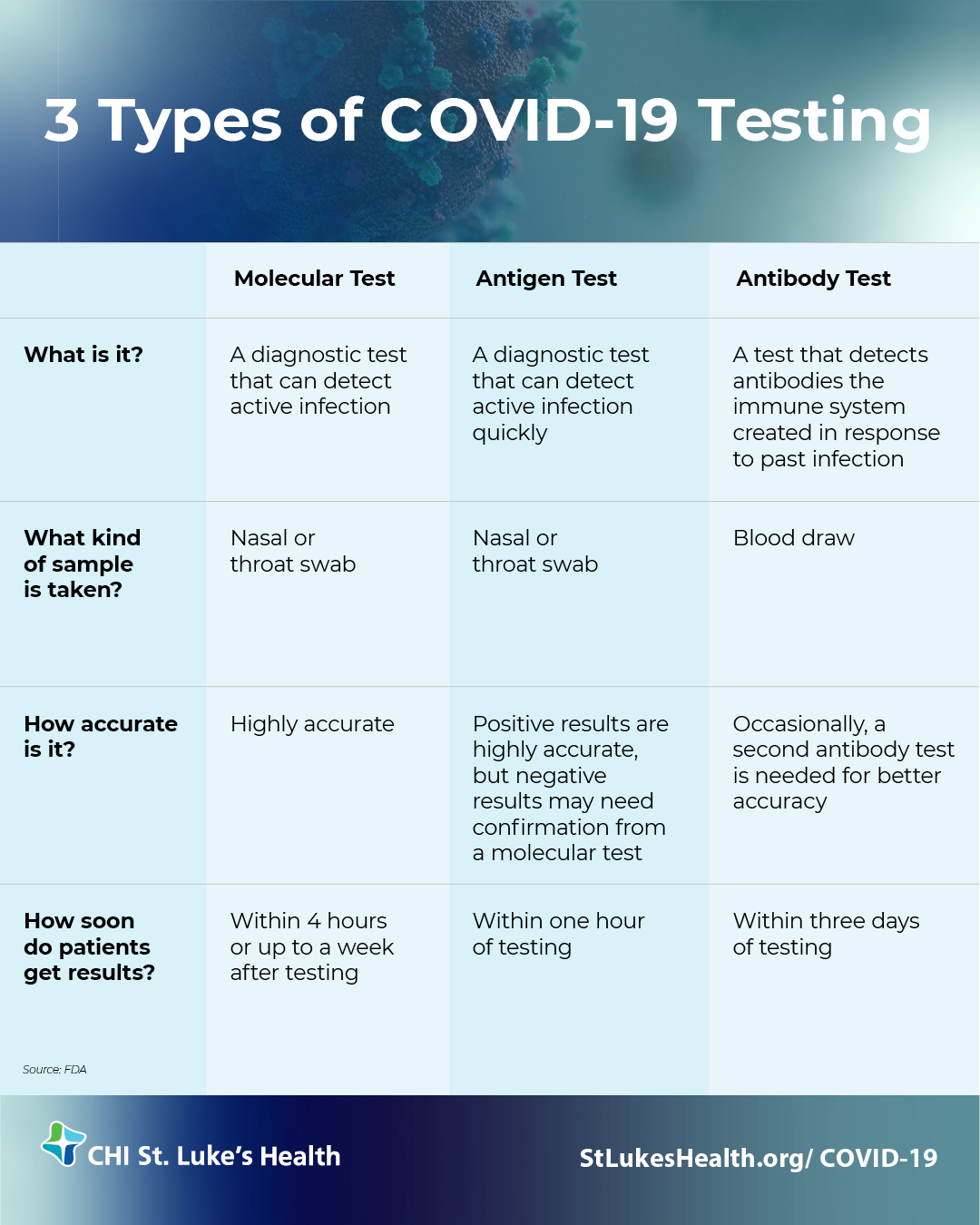As more COVID-19 testing options become available, it can be confusing to figure out the purpose of each test and what your results mean. Read on to get a breakdown of what you need to know about three common types of testing.
What You Can Expect From Each COVID-19 Test
Molecular Test
This diagnostic test is highly accurate in detecting the presence of viral RNA to determine whether or not someone has an active COVID-19 infection. At St. Luke’s Health, our team is able to get results back within 1-4 hours. Some testing sites take up to a week to get results. If you get a molecular test, it’s important to quarantine until you receive results.
Antigen Test
This diagnostic test is helpful in quickly detecting the presence of an active COVID-19 infection, sometimes providing results within 15 minutes. Depending on your symptoms, your doctor may order a molecular test if your antigen test comes back negative. This is because the antigen test often produces positive results with high accuracy and negative results with low accuracy, meaning that a negative result does not guarantee the absence of infection.
Antibody Test
This test identifies antibodies indicative of prior infection and increased immunity to the virus through a blood sample. It is not able to detect an active COVID-19 virus. Keep in mind that antibodies can take several days or weeks to develop after initial infection, so a doctor may recommend a second antibody test if results come back negative.
A Side-By-Side Comparison of COVID-19 Tests
Here’s a helpful chart you can use to easily differentiate the types of testing.





